Community Engagement
1) Education
Education is the minimum entitlement for equipping children and the youth with knowledge and skills they need for a decent future. The government of Kenya set a target of transition rate of 70% from primary to secondary schools from the current rate of 47%, and this is not achieved yet. Inversely, Primary education completion rates have been rising steadily since 2000, with United Nations 2018 figures indicating more than 90 per cent in both developed and developing regions. The sharp increase that also applies to enrolment is placing intense pressure on developing country governments to meet the growing demand for secondary education, according to Global Education Digest 2014. The situation in Kenya is acute when considering a myriad of determinants of transition from primary to secondary schools that include; family size; culture; the relationship between educational level of parents with transitions; influence of parental income and transition; sibling position influenced among other reasons. Since education is a driver for development and elimination of extreme poverty, expansion and support for both primary and secondary school is imperative as the avenue for equipping youth with knowledge and skills for securing decent livelihoods. Despite efforts by various education stakeholders and governments, peri-forest communities still lag behind in terms of capacity and needed resources and also having the country’s lowest levels of primary and secondary school attendance. While the trounce rate has shrunk over the past decade, marginalized rural communities especially the peri-forest communities still bear the brunt of shortage of secondary school opportunities. Gender gap seems to widen higher up the education ladder.

30+
schools in regions and zones where the organization operates are supported through infrastructure development

100+
primary and secondary schools schools supported in environmental conservation awareness programs.

1,500,000+
tree and tea seedlings donations made to the various schools, farmers, local communities and CBO’s
To bridge this gap, NTZDC has worked with local education and administration in the provision of educational support in three main areas. The three areas of intervention in education are: school infrastructure support; bursaries provision for bright disadvantage children; and conservation awareness campaigns (tree and tea seedlings support in instilling the value of environmental conservation from an early age). The interventions have seen an increase in the number of schools, class rooms, provision of basic infrastructure, equipment and furniture in the various zones that the organization operates. It is against this background that the organization also chose to invest in a revolving bursaries program to support bright marginalized students from the local communities where the organization operates. Notably, local communities are involved in the identification, prioritization and implementation of the selected projects through the elected CSR committees that exist in every region and at the organization’s headquarters.
CSR BUDGET PROJECTIONS
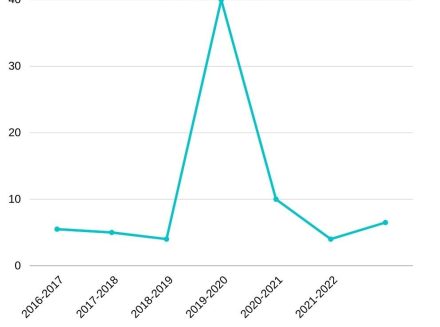

100+
Tea buying centres have
been constructed

150 Km +
of road rehabilitated in the rural areas.
2) Employment support
The 1.2 billion young people in the world today represents a wellspring of energy, enthusiasm, and potential. Unfortunately, not all young people receive the same opportunities to unlock that potential and earn a decent living. Economic opportunity means young people can access the education, training, guidance, and connections required to successfully achieve economic security and independence.
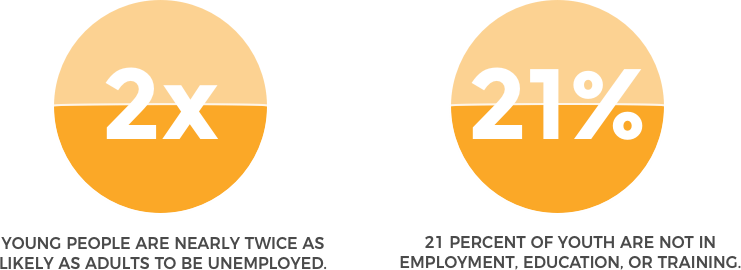
With over 800,000 young men and women entering the labour market each year, prospects for youth employment remain bleak because those that can be absorbed in either formal or non-formal sector remains a handful and therefore a majority end up unemployed with bare economic and social benefits. It is with this in mind that NTZDC works to support the local youth and communities through various employment programs that include: paid internship programs and holiday/off-campus short term contracts to help tertiary and college students to work and fend for their pocket money expenses, refute from being idol and engaging in negative social vices because of idleness and unemployment or the thought of going back to the forest to sustain themselves. A great relief for their parents who have also been absorbed by the organization through its tea farming, maintenance and plucking activities, factory operations and management as well as the out growers through purchase of their green leaf for processing of made tea.
12000+
casual workers supported through various buffer
and tea plantation activities
100+
Number of permanent staff
to be employed by Gatitu factory
630+
Number of permanent staff
at HQ and regional level
600M+
Kshs paid out directly to communities, farmers and
others annually (livelihood support)
178
Number of permanent staff
employed by kipchabo factory
14,000+
Staff including casual, temporary, HQ level,
regional offices as well
as factories.
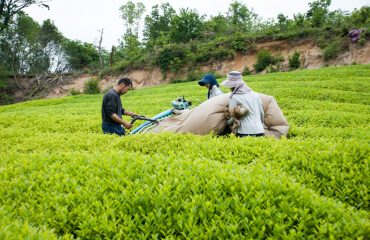
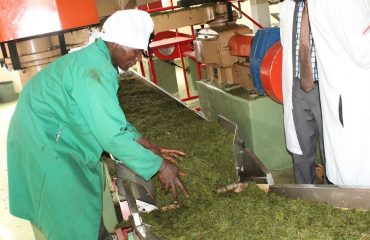
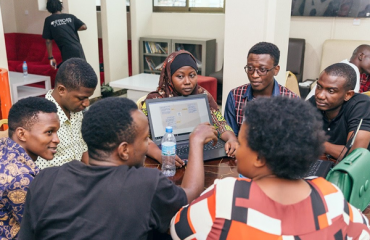
3) Capacity Development
For many years, Kenya had the optimal climate for tea growing – tropical, red volcanic soils, sunny days and stable rainfall. However, climate change impact has led to erratic rainfall, making floods and droughts more common. Temperatures are also rising, posing a threat to tea plantations carefully cultivated over many years. Deforestation playing a key role, and the areas where tea is grown are feeling the effect.
Between 2001 to 2017 tree cover dropped by 10% in tea growing regions in Kenya. It is with this in mind that NTZDC works with peri-forest communities in addressing conservation and livelihood transformation. In a bid to reduce dependency on forests for fuelwood and livelihood and to make way for other crops or infrastructure.
There is therefore the need to adopt sustainable farming practices to help farmers and small and mid-size enterprises in the agricultural sector to adapt to the change in weather patterns. NTZDC as an organization have equally developed a systematic approach to the changing climate change to sustainable farming practices through capacitating their operations team, out growers’ association and the peri-forest communities across their 19 zones on how they can adopt and become responsive to the dynamic weather changes. This is being done in a bid to increase and sustain their yields.
This has been through the development of various capacity building programs for the farmers on the selection of the most suitable areas for tea growing, crop diversification in low production areas, efficient management of soil and water resources, catchment protection, soil water conservation and rainwater harvesting.
The company recognizes the value that sustainability brings to our environmental conservation efforts. Through the government utility support for, and participation in environmental sustainability in the tea sector, the organization has embraced sustainable farming practices in all its operations and have supported small-scale farmers across our operations. Leading to the development of out-growers association/community in Kipchabo and Gatitu who supply quality green leaf to the NTZDC factories.
Through the association, over 3500 farmers have been trained on good agricultural practices, conservation of the environment, good governance and crop diversification and have obtained Rainforest Alliance and Fairtrade certifications. Through the training, smallholder farmers have been able to achieve higher tea yield per acre.
In contributing to this goal, the state utility has partnered with the Initiative for Sustainable Landscapes to restore and conserve the Mau Forest. ISLA is active in the South West Mau Forest. ISLA focuses on halting deforestation, forest conservation, water management, sustainable energy sources and sustainable livelihoods.
Through synergies harnessed by the organization through its stakeholders engagement, the cooperation has been able to work with the local communities in understanding “Conservation for Nyayo Tea zones corporation is not about planting trees but controlling deforestation” thus, protecting the gazetted forest land designated for conservation. The approach goes beyond a training programme and is, indeed, a holistic end-to-end eco-system management that seeks to enhance environmental sustainability and the quality of tea produced. The programme also provides the necessary skills and resources for rural youth to be local change makers in their communities and in the country through agriculture.